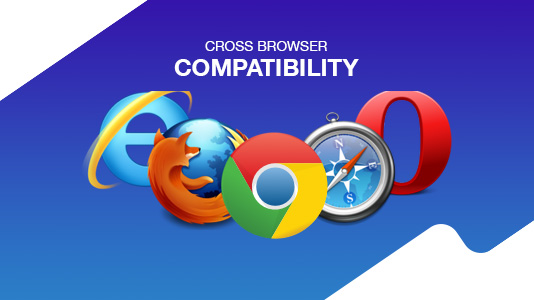Edge vs Chrome: Which Is The Best Choice?
Urwashi Priya
Posted On: March 28, 2024
![]() 160570 Views
160570 Views
![]() 11 Min Read
11 Min Read
Today, we’re more connected to the digital world than ever, and picking the right web browser is like choosing the vehicle for your online journey. According to Statista, the third quarter of 2023 report tells us that people spend an average of six hours and forty minutes online daily.
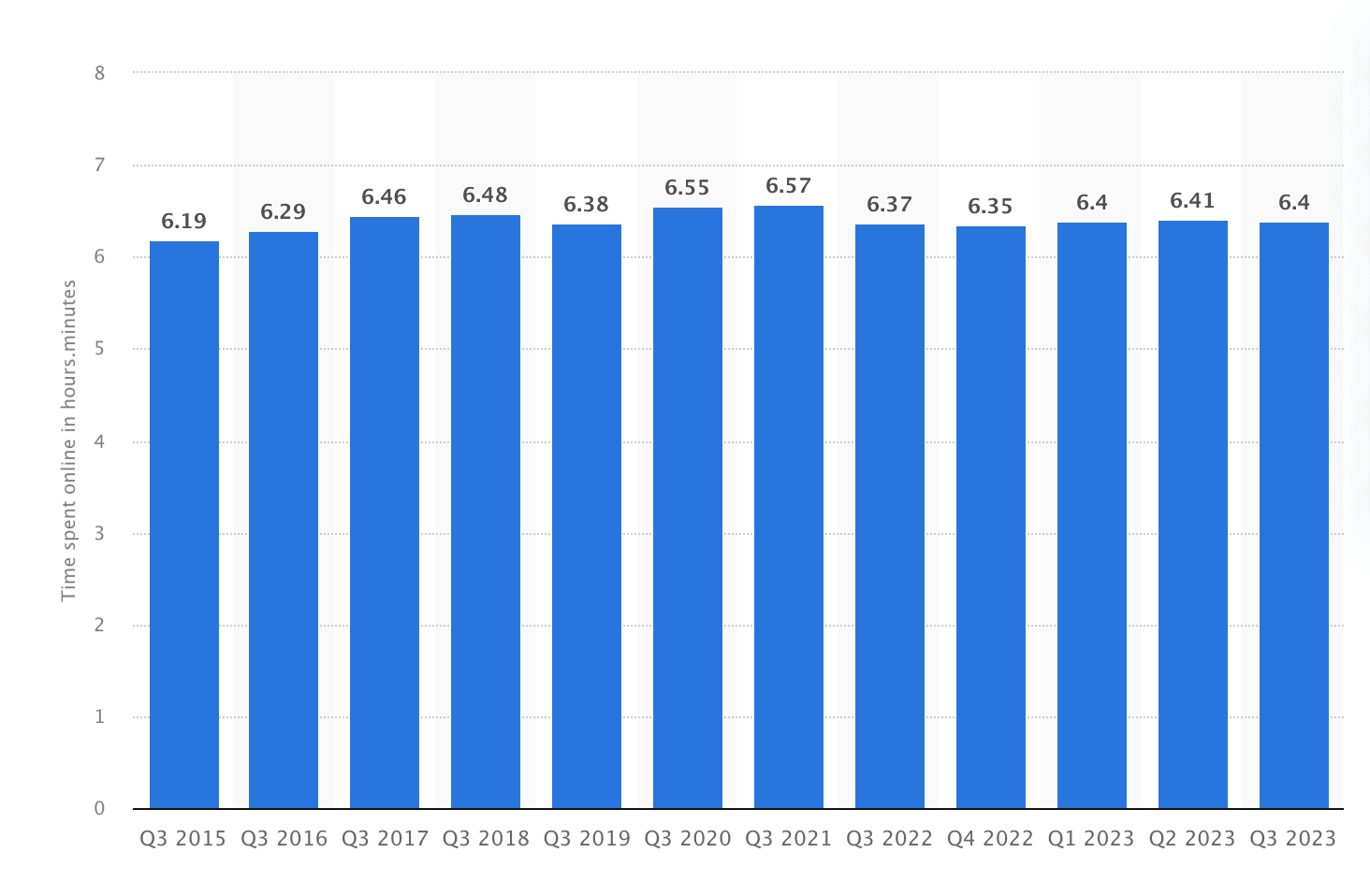
Finding the right web browser is key for a hassle-free online experience in this digital hustle. Two of the giants in the web browser arena are Microsoft Edge and Google Chrome.
TABLE OF CONTENTS
- Brief History of Google Chrome
- Brief History of Microsoft Edge
- Edge vs Chrome: Features Face-Off
- Enhance Browsing Experience With Extensions
- Edge vs Chrome: Which Is Better?
- Edge Vs Chrome: Software Tester’s or QA’s Landscape
- Automation Testing on Edge vs Chrome
- Running Automation Test On Selenium Cloud Grid
- Conclusion
- Frequently Asked Questions(FAQs)
Brief History of Google Chrome
Since its launch in 2008, Google Chrome has rapidly become a dominant force in the world of web browsing. Its rapid performance, user-friendly interface, and groundbreaking features have led to widespread adoption across different platforms. Chrome’s sleek UI, preloading capabilities, and independent process architecture for tabs massively improved performance over existing browsers. However, over time, Chrome’s RAM usage quickly drew criticism, especially when running on low-memory devices or with high numbers of tabs. Each tab spawns separate processes that quickly consume system RAM, sometimes slowing machines to a crawl. Moreover, Chrome has seen its fair share of security vulnerabilities that could expose user data. Despite these challenges, Chrome remains a dominant force in the browser market, continuously evolving to balance speed, memory efficiency, and security for a smooth browsing experience.
Brief History of Microsoft Edge
Launched in 2015 as Internet Explorer’s successor, Microsoft Edge has undergone significant evolution to address the challenges Google Chrome faces. In 2020, Microsoft took Edge in a new direction by adopting the open-source Chromium engine, which Google Chrome also uses. This transition enabled Microsoft to leverage Chrome’s regular security updates and optimizations. Microsoft has augmented Edge with unique productivity-focused features such as Collections, Read Aloud for PDFs, Immersive Reader Mode, etc., allowing users to organize and save web content efficiently. Within a few years of its Chromium transition, Edge has positioned itself as a serious contender, giving tough competition to Chrome’s undisputed dominance. With its integration between Edge and Microsoft’s productivity suite and Windows OS, Microsoft’s Edge is back in the game, giving fierce competition to Chrome’s dominance.
 Note
NoteBuild, test and debug mobile websites in a single click with LT Browser.Try LambdaTest Today!
Edge vs Chrome: Features Face-Off
Let’s dive into the feature differences between Microsoft Edge and Google Chrome.
| Aspect | Microsoft Edge | Google Chrome |
|---|---|---|
| Rendering Engine | Blink (based on Chromium) | Blink (based on Chromium) |
| Speed & Performance | Marginally faster in specific tasks like OCR Scan and Encrypt Notes. | Slightly slower, known for high RAM usage, can impact performance. |
| Resource Efficiency | Efficient RAM usage, suitable for systems with limited memory. | Heavier RAM usage strains resources on certain tasks. |
| Unique Features | Floating video, news guard, robust sync (especially on mobile). | Strong integration with Google ecosystem, sophisticated sync mechanism. |
| Security & Privacy | SmartScreen system, alerts for HTTP sites, customizable tracking protection. | Frequent security updates, advanced anti-malware features, data-driven personalization. |
| Platform Compatibility | Windows, macOS, iOS, Android (Linux support in development). | Windows, macOS, Linux, iOS, Android. ChromeOS established a cross-platform presence. |
| User Experience | Growing popularity among Windows users, tailored for Windows integration. | Long-standing, universally recognised user-friendly interface; Widely adopted as a standard for web applications. |
| AI Integration | Provides AI integration features like Chatgpt by default. | Lacks default AI Integration feature; additional extensions or plugins are required for similar functionalities. |
Enhance Browsing Experience With Extensions
In the ongoing battle of “Edge vs Chrome,” browser extensions play a pivotal role in customizing and augmenting your web experience.
Popular Extensions for Microsoft Edge
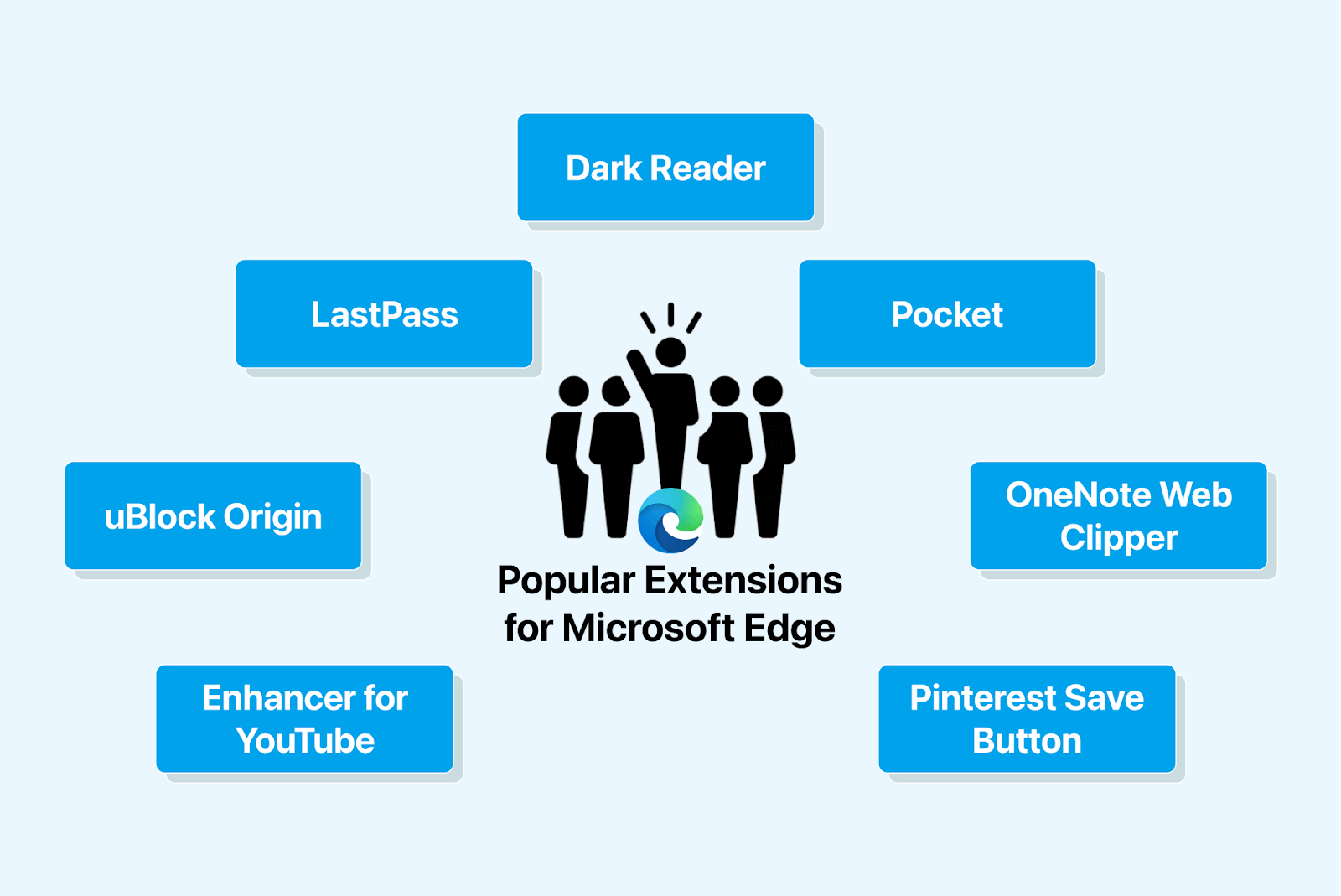
- uBlock Origin: A powerful ad blocker that improves page loading times and reduces distractions.
- LastPass: A password manager that securely stores your passwords and automatically fills them in when needed.
- Dark Reader: Enables dark mode on websites, reducing eye strain during nighttime browsing.
- Microsoft Editor: Provides spelling and grammar suggestions, as well as style recommendations, directly in Microsoft Edge.
- OneNote Web Clipper: Clips web articles, screenshots, and PDFs directly to your OneNote notebook.
- Enhancer for YouTube: Enhances your YouTube experience with features like ad blocking, pop-out video playback, and more.
- Pinterest Save Button: Allows you to save images and ideas from the web to your Pinterest boards.
Popular Extensions for Google Chrome
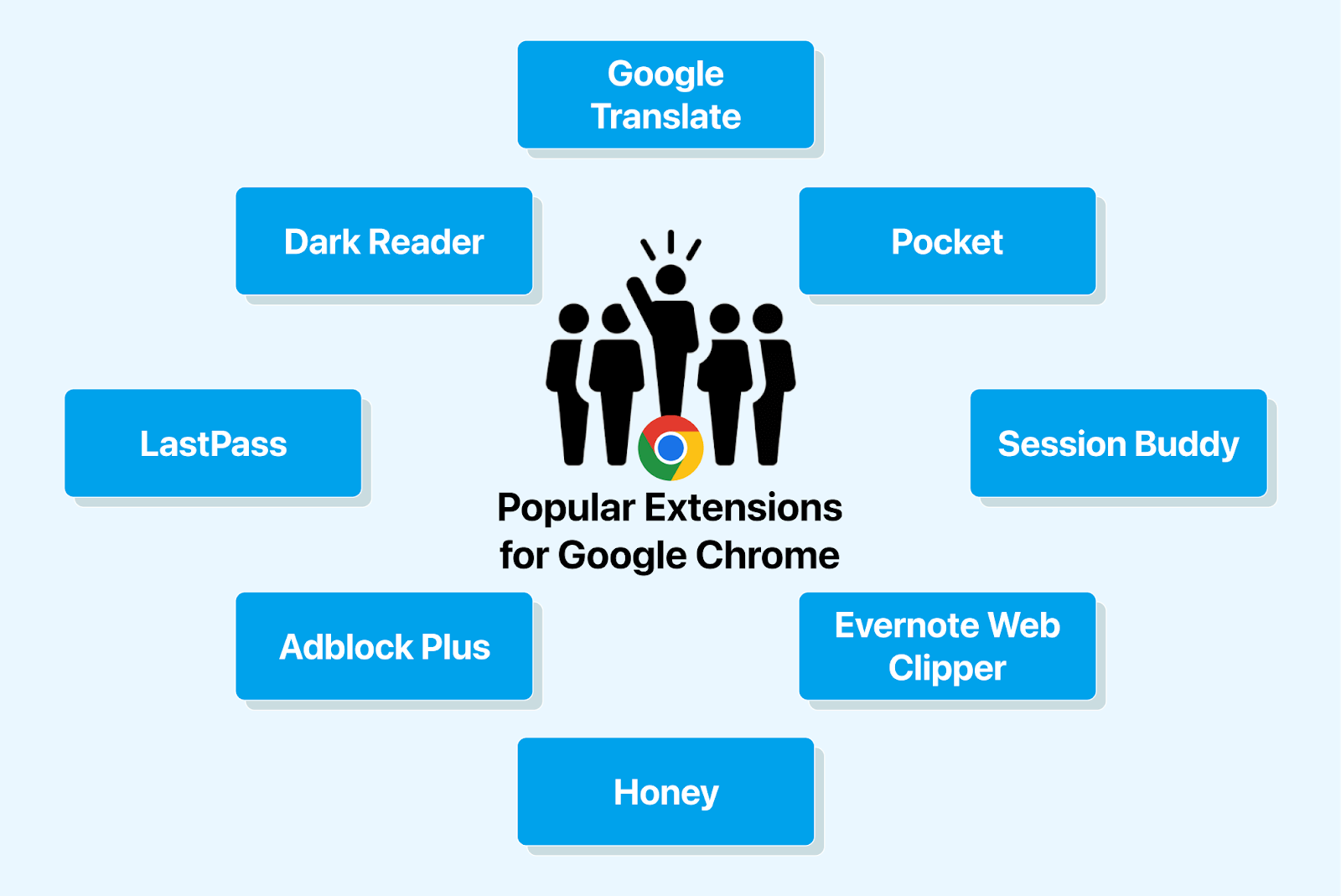
- Adblock Plus: A widely used ad blocker that helps eliminate intrusive ads from websites.
- LastPass: A popular password manager for securely storing and managing passwords.
- Dark Reader: Provides a dark mode for websites, reducing eye strain in low-light conditions.
- Google Translate: Enables quick translation of web pages into different languages.
- Pocket: Save articles, videos, and webpages to read later, even when offline.
- Session Buddy: Easily manage and restore your browser tabs, making it great for research or project organization.
- Evernote Web Clipper: Clip web content directly into your Evernote notebooks for reference and organization.
- Honey: Automatically applies coupons and finds the best deals while shopping online.
Edge vs Chrome: Which Is Better?
When picking between Edge and Chrome, it all boils down to personal choice and what you need from a web browser. Both Edge and Chrome have their unique strengths and features.
Since moving to a Chromium-based engine, Microsoft Edge has stepped up its game, getting closer to Chrome regarding speed and efficiency. Edge boasts a neat and user-friendly interface, offering excellent features like vertical tabs and immersive reader mode, which make browsing more organized and enjoyable. If you’re big on Microsoft services like Office 365 and OneDrive, Edge seamlessly integrates with them, making it a solid choice.
Conversely, Google Chrome has been a go-to for its speed and reliability for quite some time. It has many extensions and works smoothly with various web applications, giving users plenty of flexibility and customization options. Chrome’s user-friendly design suits those who prefer a clutter-free browsing experience. Its robust security features ensure a safe online journey. Plus, if you’re deep into the Google ecosystem with services like Gmail and Google Drive, Chrome’s integration makes life easier.
Ultimately, whether you choose Microsoft Edge or Google Chrome depends on what you prioritize in a web browser and what best fits your needs.
Edge Vs Chrome: Software Tester’s or QA’s Landscape
When testing web applications, it’s vital for testers and quality assurance (QA) professionals to thoroughly examine the web application on both Microsoft Edge and Google Chrome. Comprehensive testing is essential because there are significant differences in browser rendering engines, CSS support, JavaScript execution, and HTML5 compliance. These variations can lead to disparities in how web applications behave and look across browsers, as cross browser compatibility is at the center of software testing.
By testing on both Edge and Chrome, testers and developers can ensure that the applications are compatible, evaluate the user experience, assess performance characteristics, verify security features, and validate accessibility standards.
This holistic approach enables the detection of potential issues specific to each browser, which helps optimize and improve the functionality, reliability, and user satisfaction of web applications across different browser environments.
Automation Testing on Edge vs Chrome
To clearly understand the differences between testing on Microsoft Edge and Google Chrome, let’s run a test case on both browsers using Selenium and observe the differences.
The outlined procedure encompasses the following steps:
- Open the LambdaTest E-Commerce website on the browser (this is a demo website maintained by LambdaTest to run tests and learn the concepts).
- Fetch the title of the landing page.
- Print the title on the console and close the browser.
Run Test Case on Google Chrome:
|
1 2 3 4 5 6 7 8 9 10 11 12 13 14 |
from selenium import webdriver from selenium.webdriver.common.by import By from selenium.webdriver.common.action_chains import ActionChains from selenium.webdriver.common.keys import Keys # Initialize the Google Chrome WebDriver driver = webdriver.Chrome() # Navigate to the target website driver.get("https://ecommerce-playground.lambdatest.io/") print("Title of the page is: " + driver.title) # Close the browser driver.quit() |
Run Test Case on Microsoft Edge:
The key distinction when conducting similar testing on Microsoft Edge lies in the WebDriver initialization process. The rest of the code remains the same.
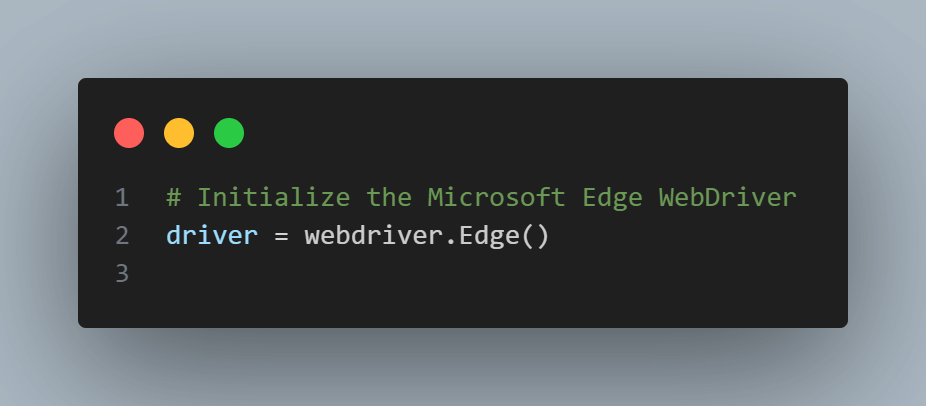
Occasionally, the XPATH for the Search Input might differ. These differences are due to variations in the HTML structure and element IDs between the websites or web pages tested in Microsoft Edge and Google Chrome.
Note: The choice of WebDriver and the specific element locators may vary depending on the target browser and web page.
Is It Truly a Matter of Edge vs Chrome When It Comes to Testing?
Regarding testing, it’s not “Edge vs. Chrome.” It’s important to ensure our web app works well on various platforms. Of the cloud solutions available, LambdaTest stands out for its Selenium Cloud Grid for performing cross browser testing.
LambdaTest is an AI-powered test orchestration and execution platform that lets you run manual and automated tests at scale on over 3000 real devices , browsers, and OS combinations. That way, we can ensure our users get the best experience no matter what they use, Edge vs Chrome.
Running Automation Test On Selenium Cloud Grid
Let’s run the earlier test effortlessly using LambdaTest’s Selenium Cloud Grid.
Read the Selenium Grid Tutorial to gain a deeper understanding of the grid.
|
1 2 3 4 5 6 7 8 9 10 11 12 13 14 15 16 17 18 19 20 21 22 23 24 25 26 27 28 29 30 31 32 33 34 35 36 37 |
from selenium import webdriver from selenium.webdriver.common.by import By from selenium.webdriver.common.action_chains import ActionChains from selenium.webdriver.chrome.options import Options as ChromeOptions # Set the desired capabilities for LambdaTest Cloud Grid lt_options = { "build": "test build", # Specify the build name "name": "Test", # Specify the test name "platformName": "Windows 10", # Specify the target platform "video": True, # Enable video recording "w3c": True, # Inform Selenium 4 is being used "browserName": "Chrome", # Specify the browser name "browserVersion": "117.0", # Specify the browser version "selenium_version": "4.9.0", # Specify the Selenium version } # Replace "YOUR_LAMBDATEST_USERNAME" and "YOUR_LAMBDATEST_ACCESS_KEY" with your actual LambdaTest credentials username = "xxx" access_key = "xxx" remote_url = "http://{}:{}@hub.lambdatest.com/wd/hub".format(username, access_key) browser_options = ChromeOptions() # Adding the capability to Chrome browser_options.set_capability("LT:Options", lt_options) # Create the WebDriver instance with the desired capabilities driver = webdriver.Remote(command_executor=remote_url, options=browser_options) # Initialize the Google Chrome WebDriver driver = webdriver.Chrome() # Navigate to the target website driver.get("https://ecommerce-playground.lambdatest.io/") print("Title of the page is: " + driver.title) # Close the browser driver.quit() |
Conclusion
Microsoft Edge and Google Chrome are two giants in the realm of web browsers, each with its strengths. Microsoft Edge excels at collaborating with other Microsoft products. It also has robust privacy features and helpful tools such as Collections and Immersive Reader.
Google Chrome is known for its speed, vast user base, and extensive extension library. Their choice depends on your ecosystem preference, speed requirements, and feature priorities.
Consider having both browsers for versatility, and remember that they both undergo frequent updates. Ultimately, it’s about finding the best browser for your needs and habits.
Frequently Asked Questions (FAQs)
Which browser consumes fewer system resources, Microsoft Edge or Google Chrome?
Both Microsoft Edge and Google Chrome have made efforts to improve resource management, but Microsoft Edge often consumes fewer system resources, particularly RAM. However, the actual resource consumption can vary depending on your specific usage and the extensions installed.
Which browser is better for web development and debugging?
Web developers often prefer Google Chrome for its robust set of developer tools, which are highly regarded in the industry. These tools provide extensive capabilities for testing and debugging web applications.
Is it possible to use Microsoft Edge and Google Chrome simultaneously on the same computer?
You can use Microsoft Edge and Google Chrome simultaneously on the same computer. They won’t interfere with each other, and you can choose which one to set as your default browser.
Got Questions? Drop them on LambdaTest Community. Visit now









